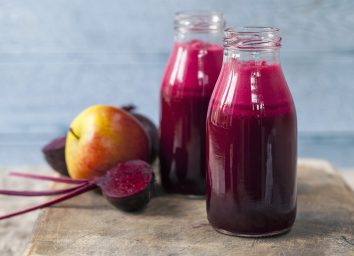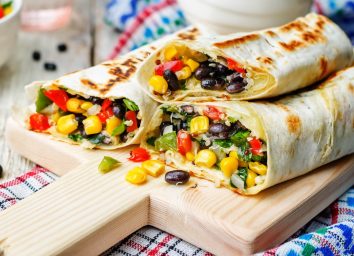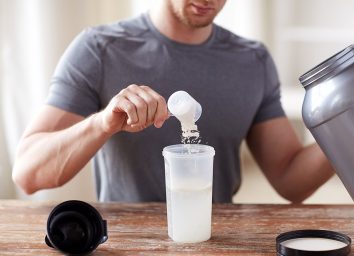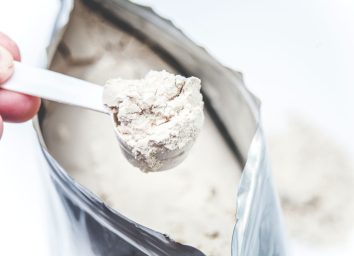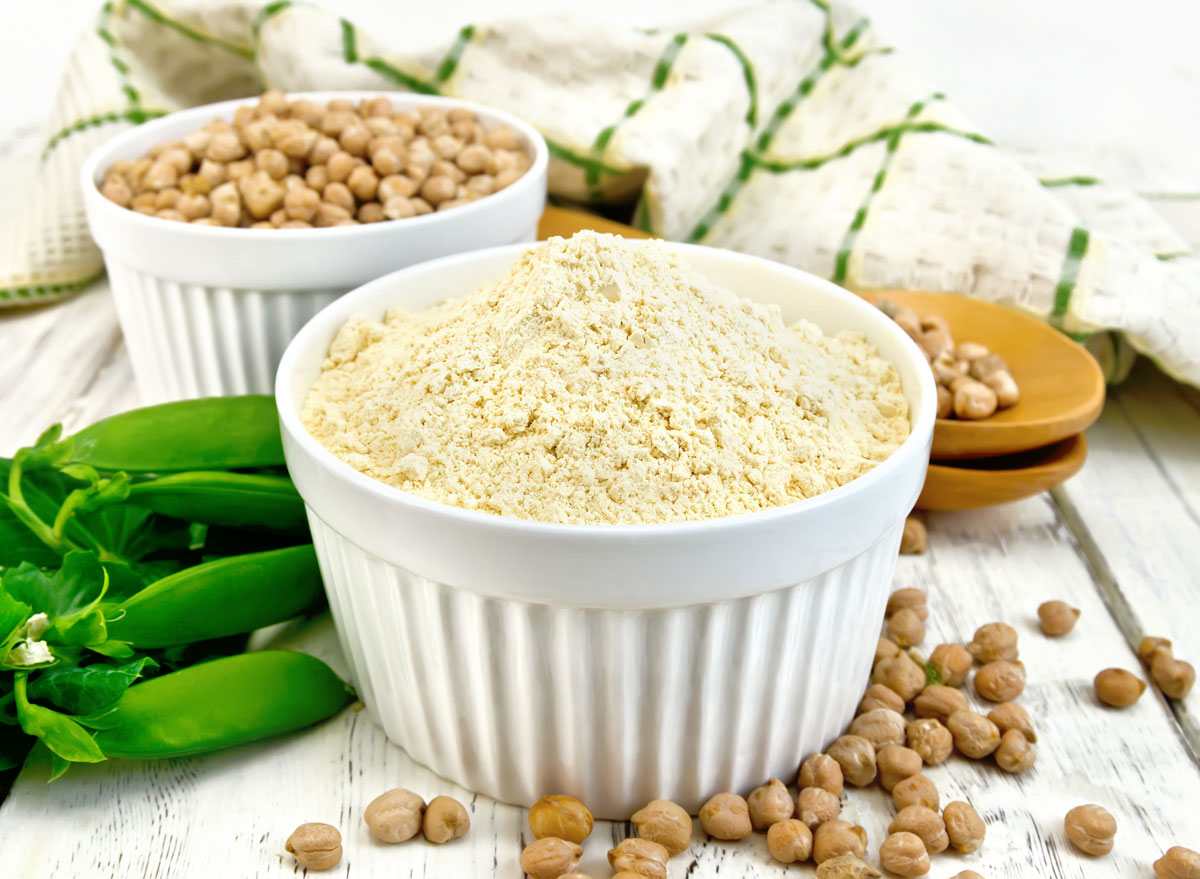
If you're looking to lose a few pounds in a sustainable way or to simply to eat a healthier diet, your strategy likely includes (or should include) cutting back on refined carbs and upping your protein game. Protein can help you feel full for longer, staving off hunger and preventing the excess snacking and overeating at meals that comes with it.
The thing is, carrying around a protein-packed cooked chicken breast in your back pocket isn't exactly the easiest—or safest—thing to do if you want to eat more protein. Rather, your ticket to avoiding the unhealthy snacks in the vending machine and minimizing large portions is a portable, lightweight protein option that won't spoil in your desk drawer or gym bag. Oh, and did we mention it also has additional health benefits? We're talking about pea protein powder.
What is so great about protein from those little green pods you avoided as a kid? Let us tell you.
Unlike other vegan protein powders, pea protein blends easily.
If it isn't your first rodeo with protein powder and you've been giving pea powder the stink eye because you think it's like many of the other gritty plant-based powders, relax your palate; you're in for a treat. Pea protein is smooth and mixes well in smoothies and shakes.
Pea protein is digested easily, making it a good option for those with sensitive stomachs.
Pea protein generally is well-tolerated by more finicky intestinal tracts and won't cause upset stomachs like some protein powders do. It also ranks higher than most vegetable protein sources on the PDCAAS scale of digestibility and protein quality, according to a Journal of Nutrition study.
Pea protein can aid in weight loss.
If you're motivated by your waistline, you'll appreciate that pulses are beneficial for promoting weight loss. In fact, a Clinical Nutrition study showed that pulses (like pea protein), aid in weight loss even when calories aren't restricted. When calories are restricted, a pulse-based diet can result in 2.5 more pounds lost over 8 weeks than avoiding pulses, according to a European Journal of Nutrition study.
The slimming benefit may be credited to the protein and high fiber content in pulses which is a great combination for keeping you satisfied, your blood sugar level stable and your energy on an even keel. Without blood sugar dips and energy crashes, you're much less likely to crave quick pick-me-ups so you can tell that candy bar who's boss.
Pea protein can help build lean muscle mass.
Pea protein's health benefits don't stop at your heart and waistline; it also benefits your muscles. If you've been told that vegetarian protein sources don't build muscle as well as animal-based products, this isn't the case with pea protein. It's a good source of the branched chain amino acids which are critical for building lean tissue.
In fact, a Journal of the International Society of Sports Nutrition study showed that pea protein can build muscle just as well as popular dairy-based protein powders.
And compared to other plant protein powders, it's got another edge; brown rice can contain arsenic, while soy protein powders are likely genetically modified and can contain contaminants if they're not organic and they can pose an allergy risk for many people.
Pea protein is a great source of iron, making it especially beneficial for vegans.
A great source of iron—one serving of Bob's Red Mill pea protein powder contains 35 percent of your daily value of the nutrient—pea protein powder can be helpful for vegans who may typically choose other plant proteins that are low in iron. And while pea protein is slightly low in the amino acid methionine, with the typical diet, it can easily make up for it.
Pea protein—and pulses—have numerous additional health benefits.
If you're vegan or don't eat dairy, pea powder is ideal for you and it even gives meat-eaters an edge over traditional non-plant-based powders.
With pea powder you get the benefits of pulses (the protein-packed, sustainable foods that include dried peas, beans, lentils, and chickpeas), which means you can get closer to meeting the recommended 1-1/2 cups per week of pulses for heart health benefits, including lower blood pressure and lower blood cholesterol. Pulses have also been shown to help stave off diabetes by lowering blood glucose and insulin levels, as shown in an Applied Physiology, Nutrition, and Metabolism study.
With all of these benefits, who wouldn't want to say, "pass the pea protein powder, please?"
Disclaimer: The Nutrition Twins are sponsored by USA Pulses and Pulse Canada. All thoughts and opinions are their own.
